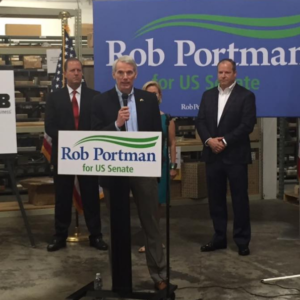As the nation concentrates on the demolition derby known as the 2016 presidential race, there’s little attention being given to U.S. Senate elections. That needs to change.
Regardless of who wins the White House, the Senate will be ground zero to advance or scuttle the next president’s agenda. In addition to lawmaking, the body approves treaties and confirms Cabinet members, federal judges, Supreme Court justices and ambassadors. Because of its filibuster rule, and the steep 60-vote majority required to get around it, every vote counts.
Republicans now hold the Senate majority with 54 of 100 seats. To win control, Democrats must add four seats to their current total of 46, assuming the next vice president is Democrat Tim Kaine, who, as Senate president, could break a 50-50 tie. But if the next vice president is Republican Mike Pence, they’d need to gain five seats.
Each party sweats elections when they have the most at stake — and the most to lose. This year, Republicans have 24 seats to protect while Democrats only have 10. This imbalance allows Democrats to play offense, while Republicans are forced to play mostly defense.
A dozen elections around the nation will decide Senate control.
Five vulnerable Republican incumbents are running in states that Democrat Barack Obama carried in both 2008 and 2012: Mark Kirk in Illinois, Ron Johnson in Wisconsin, Kelly Ayotte in New Hampshire, Rob Portman in Ohio and Pat Toomey in Pennsylvania. Democrats will make all-out efforts to knock them off. Polls show Kirk and Johnson running behind, but Portman is now ahead. Ayotte and Toomey had early leads, but seem to have lost them recently.
Additionally, there are three insecure GOP incumbents running in states that Republican nominee Mitt Romney carried in 2012: John McCain in Arizona, Richard Burr in North Carolina and Roy Blunt in Missouri. While these states lean Republican, Democrats smell opportunity. Moreover, North Carolina has become a swing state — Romney won it by only two percentage points. In Arizona, McCain fatigue among voters, right and left, gives Democrats a chance. Blunt, a longtime GOP leader on Capitol Hill, finds himself in a closer race than expected.
Republicans are also fighting to defend the Florida seat now held by Sen. Marco Rubio, who had decided to skip a re-election bid to seek the presidency. But after Rubio dropped out of the presidential nomination race, Republican leaders talked him into changing his mind and running for re-election. It was a smart move. Rubio is now the favorite, giving his party a badly needed life raft in a swing state that voted for Obama twice.
There are also two open seats, now held by Republicans, worth watching.
In Louisiana, 24 candidates are angling for the job of retiring GOP Sen. David Vitter. Republicans start with the advantage, given the state’s strong conservative inclination. But, if Republican David Duke, a former Ku Klux Klan leader, makes the runoff in the open primary against a Democrat, the GOP would likely lose the seat. There is also a possibility in this anything-goes race that the runoff will pit two Republicans against each other, which is what GOP strategists are betting on.
With the retirement of Republican Sen. Dan Coats in Indiana, one would expect this open seat to stay in GOP hands. But former Democratic senator and governor Evan Bayh is making a comeback bid, and he’s now favored to win.
Democrats, much to their glee, have far fewer vulnerable seats. The top one, and maybe the only one, is in Nevada, now held by retiring Minority Leader Harry Reid. It appears to be a tight contest. The Colorado seat held by Democratic Sen. Michael Bennet was once thought to be a GOP pick-up opportunity, but recent surveys show the incumbent with a healthy lead.
Of course, partisan bile from the presidential contest will splatter all over Senate candidates. That’s why Donald Trump’s rocky campaign is so worrisome for Republican senators facing re-election. They know a divided party with a battered standard bearer is bad news, especially in states like Illinois, Pennsylvania, Wisconsin, New Hampshire and Ohio – –states where they will have to swim against the tide.
America will continue to fixate on the unfolding presidential drama, but just remember that the outcome of these Senate elections, in addition to the battle for the Oval Office, is a really big deal for the country’s future.

